
When your vehicle is in park, the RPM (revolutions per minute) of your engine should stay relatively even. If it doesn’t, there’s likely something wrong with your vehicle’s engine.
If your vehicle’s check engine light is on, we’ve provided the most common causes of RPMs going up and down while a vehicle is in park, and the common codes that go along with them. Without them, there’s a lot of potential causes to cover.
Here are some of the most common causes of RPM going up and down when a vehicle is in park.
1. Idle Air Control Valve
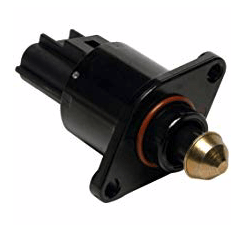
Often seen with codes P0505 or P0511. Not all engines use an idle air control valve.
The idle air control valve (IAC) controls the air allowed to bypass the throttle plate when the vehicle is idling.
When the vehicle is not in motion, the RPM will often decrease and the idle air control valve will open to allow more air into the cylinders, causing the engine to speed up again.
When the IAC fails, it’ll allow air into the engine at random, which will cause the RPM to go up and down while parked.
Bad IAC Valve Causes
- IAC valve failed.
- Wiring issue going to the IAC valve.
If the IAC valve threw an OBD II code, most of the time, replacing it will get your vehicle idling right. Examine the wiring harness going to/from it. Look for damaged wiring, rodents love to nest on a warm intake manifold.
2. Vacuum Leak
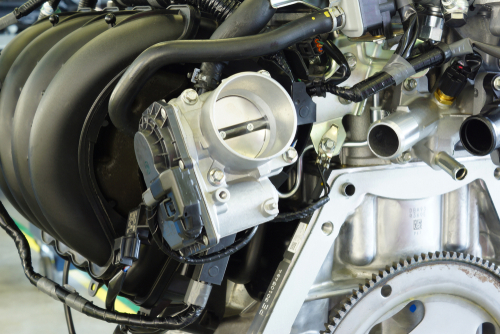
A vacuum leak is commonly observed with code P0171, P0300, or no code.
A vacuum leak is one of the most common reasons for RPM fluctuations when a vehicle is in Park. This occurs when engine vacuum pulls air through a faulty seal or gasket into the intake manifold, causing an imbalance of air and fuel in the combustion chamber.
A vacuum leak may or may not cause a misfire, depending on how bad the leak is. Your vehicle’s struggling with RPM while in park is because the powertrain control module (PCM) is trying to adjust and compensate for unmetered air entering the combustion chamber.
Vacuum Leak Causes
- Intake gasket
- Cracked or disconnected vacuum hoses
- Intake hose leak (between the MAF and throttle body)
3. Misfire
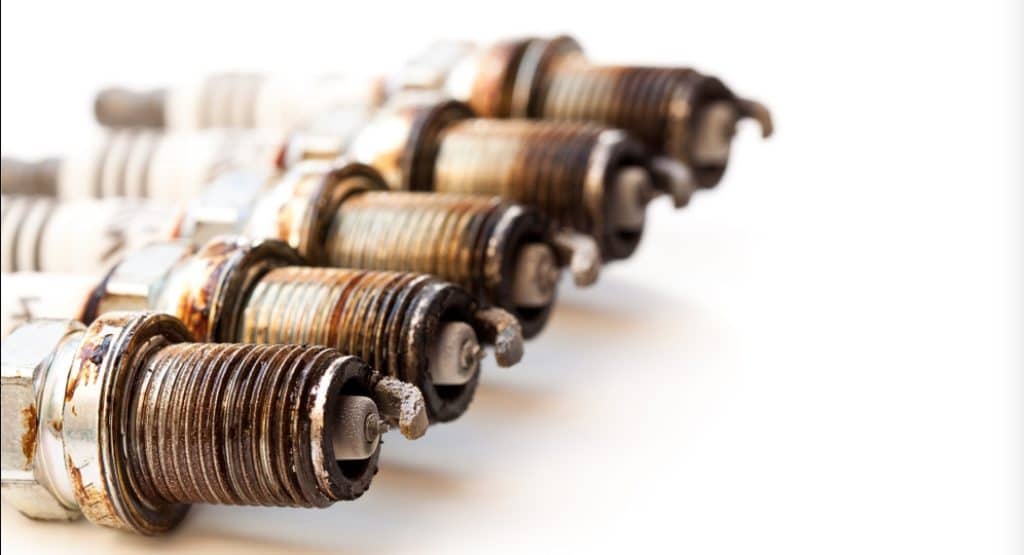
Your vehicle may have a flashing check engine light, P0300 or P030X (where X is the misfiring cylinder).
A misfire can cause the engine’s RPM to go up and down when idling. Typically, misfiring doesn’t go away as the RPMs increase.
A misfire can be a common cause of an engine RPM fluctuation when the vehicle is in park. When an engine misfires, it causes the engine to shake and lose power.
Misfiring Causes
The decrease in RPM is usually caused by an ignition related issue. The more an engine misfires, the more severe the drop in RPM will be.
Here are the main reasons why an engine misfires.
- Failure of the ignition parts (bad plugs, coils or coil packs, and plug wires if applicable).
- A vacuum leak can cause the air/fuel mixture to lean out.
It is important to diagnose a misfire as soon as possible and make the necessary repairs, or replace what’s malfunctioning, in order to avoid severe damage to the engine or catalytic converter.
4. Oxygen Sensors
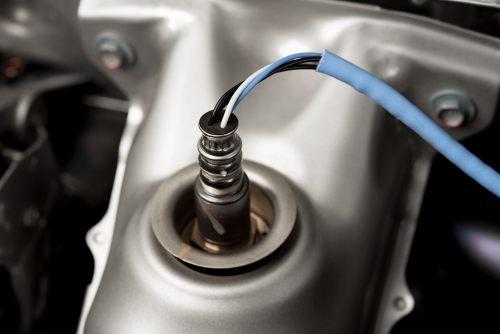
You’ll likely see an O2 sensor code, such as P0150.
Oxygen (O2) sensors help the PCM control fuel trim and emissions. They do this by measuring the amount of oxygen in the exhaust gas that is produced by the engine and help regulate the air-fuel ratio of the fuel going into the combustion chamber.
Bad O2 Likely Fix
The air-fuel ratio should be around 14.7:1 for gasoline engines. If an oxygen sensor is inconsistently reporting the O2 levels in the exhaust, it can cause the vehicle to run lean or rich.
- Replace the O2 sensor.
- O2 sensor wiring issue.
- Exhaust leak (keeps the O2 sensor from getting the right reading).
5. EGR System
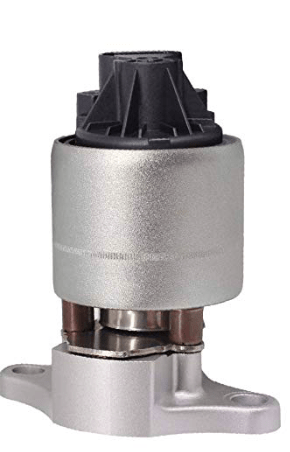
RPM going up and down when a vehicle is in park can be due to a faulty Exhaust Gas Recirculation (EGR) system.
An EGR valve works by opening and closing to allow exhaust gases to mix with the fresh air-fuel mixture that enters the engine cylinders. This helps reduce the amount of nitrogen oxide (NOx) emissions coming from the vehicle, which can be harmful to the environment.
When an EGR valve malfunctions, it can cause a vehicle’s RPMs to fluctuate when in park.
Likely Fix: Replace the EGR Valve
The faulty EGR valve may not open or close properly and allow too much exhaust gases into the engine cylinders. This causes a drop in the engine’s power, leading to the RPMs going up and down. To fix this issue, it’s likely you’ll need a new EGR valve.
6. MAF Sensor
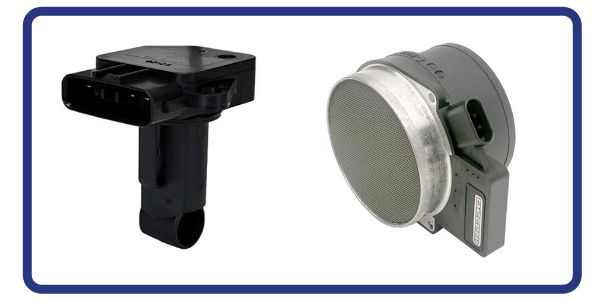
The MAF sensor meters the air before it passes through the throttle body. When there are issues with it, your vehicle may have a hard time adjusting the air fuel mixture, and the RPMs will change in park.
Likely Fixes
- Clean the MAF sensor.
- Repair the MAF sensor.
- Inspect the wiring going to/from the MAF sensor.
7. Other Causes
The five reasons listed above are the most common reason that idle speed can change when in park. Here are some other reasons it can happen (even if they don’t happen as frequently).
- Bad gas
- Dirty throttle body
- MAF sensor issues
- Clogged Fuel injectors
